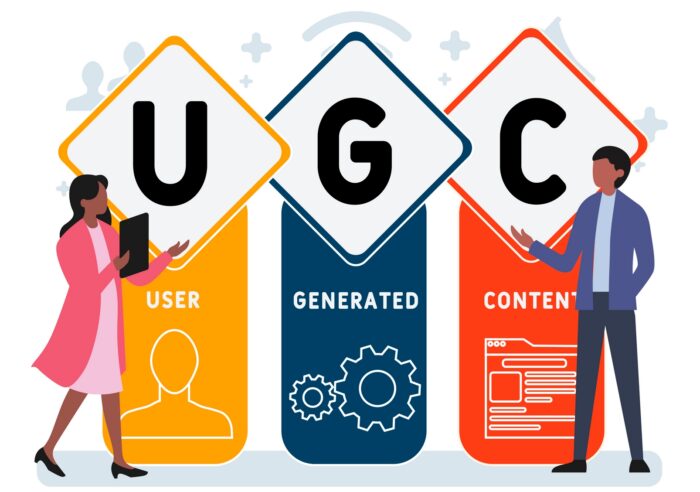
The digital marketing agency staffed by young techno-geeks whose passion is combining marketing with digital technology is no longer the outlier it was 10 or 15 years ago. Digital marketing has absolutely taken the world by storm. But it is also a rapidly evolving industry. So much so that it can be hard to keep up on some days.
What will digital marketing look like five years from now? How about 10 years? No one really knows. But there are some trends on the horizon, trends that could dictate the direction digital marketing agencies take over the next 12 to 18 months.
A number of those trends were recently discussed by industry experts assembled for the Great British Entrepreneur Awards. The gathering brought together some of the foremost names in digital marketing for a discussion on what the future holds.
Based on that discussion, as well as what we are hearing from other industry experts, here are six digital marketing trends every agency should be watching in the coming months:
1. A Desire for More Interaction

One of the primary benefits of digital marketing over its traditional counterpart is the opportunity to encourage interaction. In a traditional marketing scenario, advertisers are presenting a message to consumers. Those who hear or see it are static recipients of it.
A lot of digital marketing works that way, too. But it doesn’t have to. Digital technologies open the door to tremendous possibilities. Instead of just delivering a message to a static audience, marketers can encourage consumers to participate in the messaging. One of the more recent examples is the trend of giving consumers a choice of advertisements they want to see while streaming their favorite shows.
2. A Move Away from Social Media Content

Even mentioning this next trend, a move away from social media content may sound like blasphemy to digital marketing agencies who focus so much of their efforts on Facebook, Twitter, et al. But the reality is that social media has become so saturated with ads that people are bored. They are not paying attention anymore.
Just five years ago, social media was the hottest platform for marketing. But instead of really homing in on social media’s potential, far too many marketers were content to chase likes and followers. They created an untenable scenario of trading genuine engagement for short-term interest. Now those chickens have come home to roost.
3. More Emphasis on Longform Content

As brands want their digital marketing agencies to pull back from social marketing, they expect a greater emphasis on other marketing opportunities. Among them is longform website content. In fact, there are some in the digital marketing industry convinced that longform content will be the next big thing.
At Webtek Digital Marketing in Salt Lake City, UT and Austin, TX, they have been recommending longform website content for a while now. They say that it offers a number of marketing advantages over social media and shorter website content:
- Keyword Usage – By its very nature, longform content boosts keyword usage by giving more opportunities to exploit primary keywords and their many derivatives in a more natural way.
- More Relevance – Longform content makes it easier to create relevance for website viewers. When you create relevance for them, you are also creating it for Google algorithms.
- Improved Engagement – One of the reasons people are becoming bored with social media is that it lacks depth. Consumers are starting to turn toward longform content because it is more informative, more interesting, and more meaningful.
While longform website content is not defined by a specific word count, a generally accepted rule is 1000+ for a fairly involved topic. More complex topics could mean more words. On the other hand, it is a bad idea to force basic topics into a longform format if that means writing a lot of words without saying anything valuable.
4. Being More Informative

Hand-in-hand with longform website content is the emerging trend of being more informative. However, being more informative covers all types of content. It applies to longform pieces, short blog posts, infographics, and even videos. People want to be informed. They do not want to be fed mindless blather.
Perhaps the desire to be better informed is a result of two years of the COVID pandemic. Maybe people have come to realize how much they don’t know. And if that is the case, brands that do a better job of informing them will do better in the marketplace.
5. Being More Authentic

Another emerging trend is that of being more authentic in one’s brand messaging. Marketing authenticity doesn’t necessarily mean going overboard in personal branding – as so many companies have done as of late.
Personal branding has proved valuable to digital marketers. But it can be taken too far. Authenticity is the antidote in as much as it tempers personal branding with the understanding that consumers know when things are taken too far. Authenticity encourages brands to be genuine and transparent without laying absolutely everything on the table.
6. More User-Generated Content

Brands seeking to build a stronger connection with their audiences may place a greater emphasis on user-generated content (UGC) in the coming months and years. UGC is more or less an extension of the consumer interaction concept. What makes it so dynamic is that it turns average consumers into effective content creators.
Perhaps such a thought is anathema to professional content creators. But the thing to remember is that consumers relate to one another at a level that brands cannot achieve. Consumers speak one another’s language. They understand one another’s thoughts and ideas. Having them create marketing content by way of reviews, FAQs, etc. taps into their natural, organic conversations.
Digital marketing is a constantly evolving entity. It is part science, part art, and part dumb luck. One thing is for sure: digital marketing agencies capable of keeping up with its evolution remain at the forefront. Those that do not, fall behind. Here’s hoping your digital marketing agency is part of the former group.











